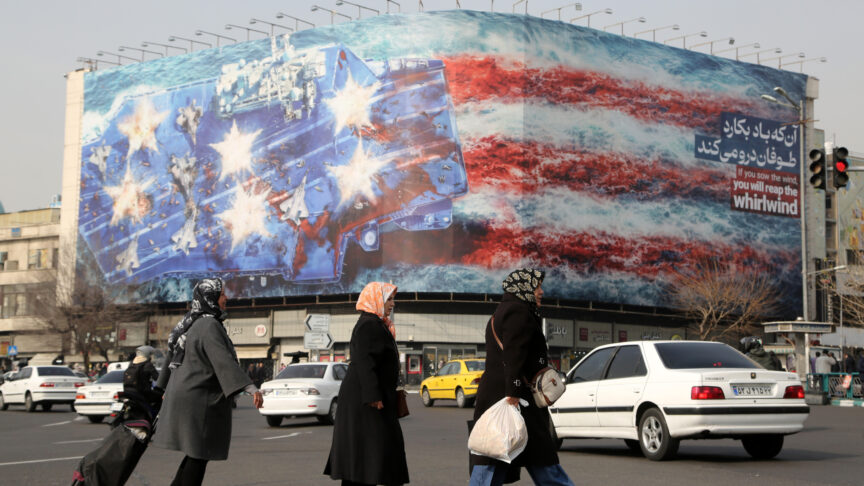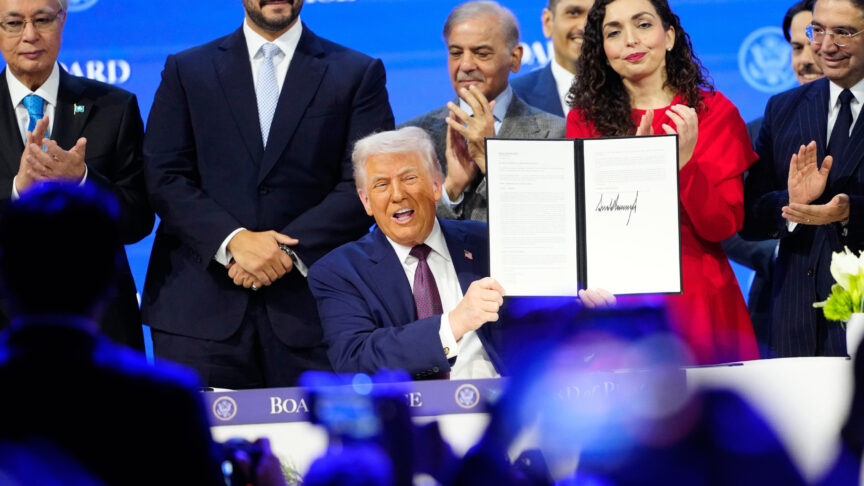After Qaboos: The future of Oman and Gulf geopolitics
The fractious context of the Gulf means Oman’s new ruler could soon find himself seeking to emulate his predecessor and championing regional diplomatic dialogue
On learning that Sultan Qaboos bin Sa’id al-Sa’id had passed away in the early hours of 11 January, there could hardly have seemed a trickier moment for Oman to lose its late sultan than a period of renewed escalation between the United States and Iran.
Sultan Qaboos was ruler of Oman for 49 years, and he acquired the reputation of one of the most dedicated and effective facilitators of diplomacy in the Gulf. Over the course of his rule, he carved out a unique place for his country in the volatile region. He made a point of maintaining relations with Iran before and after the Islamic Revolution, and of advocating dialogue between Tehran and Washington as much as between Tehran, Riyadh, and the other capitals of the Gulf monarchies. In recent times, Oman offered its good offices to the negotiation of the 2015 Iran nuclear deal, and remained committed to providing a backchannel after Donald Trump withdrew from the deal in May 2018.
Under the sultan, Oman kept its distance from the forms of polarisation that emerged throughout the region after the Arab Spring, that pitted Sunnis against Shi’a, and Sunni Islamists against anti-Islamists. Oman remained neutral on the wars in Yemen and Libya, maintained diplomatic relations with the regime of Bashar al-Assad in Syria, and did not take sides in the political boycott and economic embargo of Qatar. Sultan Qaboos cherished Oman’s membership of the Gulf Cooperation Council (GCC), but in 2013 effectively and loudly torpedoed prospects for a Gulf Union proposed by the former king of Saudi Arabia, Abdallah bin Abdulaziz al-Saud. Sultan Qaboos wanted to lead an autonomous state, one that worked for and prioritised regional stability. He saw the proactive assertiveness of Saudi Arabia, and of the United Arab Emirates’ more youthful leaders, as reckless and disruptive.
Under Sultan Qaboos, Oman kept its distance from the forms of polarisation that emerged after the Arab Spring
On Sultan Qaboos’s death, Oman’s difference of approach sparked concerns in Muscat that its neighbours could take advantage of a vulnerable moment, including potentially interfering with selecting a successor. The sultan had no heir, and so he had crafted a process for choosing a successor that involved the ruling family council meeting to agree on a name. In case they were unable to do so, he had left his own suggestion in two sealed envelopes held in two secret locations, to be opened by the sultanate’s Defence Council. But the royal family skipped straight to Sultan Qaboos’s choice by opening the letter, and Haitham bin Tariq al-Sa’id became the new sultan of Oman. It was swift, relatively painless and – most importantly – it represented a closing of the ranks to protect the royal family.
Long rumoured to be among the most likely candidates, Sultan Haitham resembles Qaboos in possessing a quiet and reflective character and having spent his formative years in the United Kingdom, where he went to Oxford University. With a background in diplomatic studies and – in contrast to other candidates – no military experience, Haitham held positions in the Ministry of Foreign Affairs and became the minister of culture and heritage in 2002. In 2013, he became the chair of the committee that developed Oman Vision 2040, a plan to diversify the sultanate’s political economy away from its rentier model. Business- and diplomacy-orientated, the new sultan has already vowed to preserve Oman’s traditional policies of “good neighbourliness”, i.e. of advocating peaceful coexistence between the Persian and Arab shores of the Gulf. Whether he will have the legitimacy and diplomatic capital to actively pursue this, however, remains to be seen.
Certainly, he would greatly benefit from such attributes at the present moment, following the targeted killing of the Islamic Revolutionary Guard Corps’ (IRGC) Quds elite forces leader, General Qassem Soleimani. Within the GCC, Soleimani was considered a formidable rival and was the strategist responsible for the IRGC’s expansionist policies. Gulf capitals believe that the coming months could see Iran seek to further avenge his death, perhaps with covert asymmetrical operations taking place under the guise of plausible deniability. The new sultan’s first test will be his ability to effectively press Tehran for restraint towards all GCC states.
In some GCC capitals – Riyadh, Abu Dhabi, and Manama – the belief is that retaliation could very well happen against US military assets on their territories, or even non-US strategic targets. These could include critical infrastructure such as airports and mega-events, or tankers transiting the Strait of Hormuz. Indeed, with the Sultanate of Oman distracted reorganising the state around the new sultan, Hormuz – whose sovereignty is shared by Iran and Oman – may be especially vulnerable. Both Saudi Arabia and the UAE hope that the tactical talks they have been holding with Iran since autumn 2019 will reduce these risks.
Gulf states increasingly believe the United States’ Iran policies barely feature the interests of its Gulf partners
Kuwait and Qatar have less confrontational and more pragmatic relations with Iran and are unlikely to be high on Iran’s list of targets. But their governments are well aware that they could find themselves caught between a rock and a hard place should conflict erupt in the Gulf. Since the killing of Soleimani, the emir of Qatar, Tamim bin Hamad al-Thani, has travelled once to Tehran. With the Omanis focused on the ailing sultan and the succession, Doha is likely to have been pushing ahead on efforts for diplomacy and de-escalation. Qatar hosts a US base in al-Udeid, and so is working to preserve working relations with Iran, which deepened when Iran stepped in to provide vital alternative routes to Qatari energy exports at the outbreak of the intra-GCC crisis in June 2017. The Kuwaiti emir, meanwhile, often saw eye to eye with Sultan Qaboos. He has quietly raised the security alert in the emirate, keenly aware of the fact that Kuwait, bordering Iraq, hosts dozens of thousands of US troops.
Amid this context, Gulf states are aiming to avert any further escalation, and they are also increasingly of the view that the United States’ Iran policies feature the interests of its Gulf partners only marginally, if at all. For this reason, all GCC capitals, including those that are more hawkish on Iran, have issued statements in recent days making clear that they were not consulted on the Soleimani operation, or warned ahead of it. They have called on all parties to demonstrate self-restraint and undertake de-escalation. Most importantly, whether they all acknowledge it or not, at some point the Gulf region will need local voices to champion a regional diplomatic dialogue to resolve these outstanding issues – and mediators like Oman could again be the ones to carry it forward.
The European Council on Foreign Relations does not take collective positions. ECFR publications only represent the views of their individual authors.


